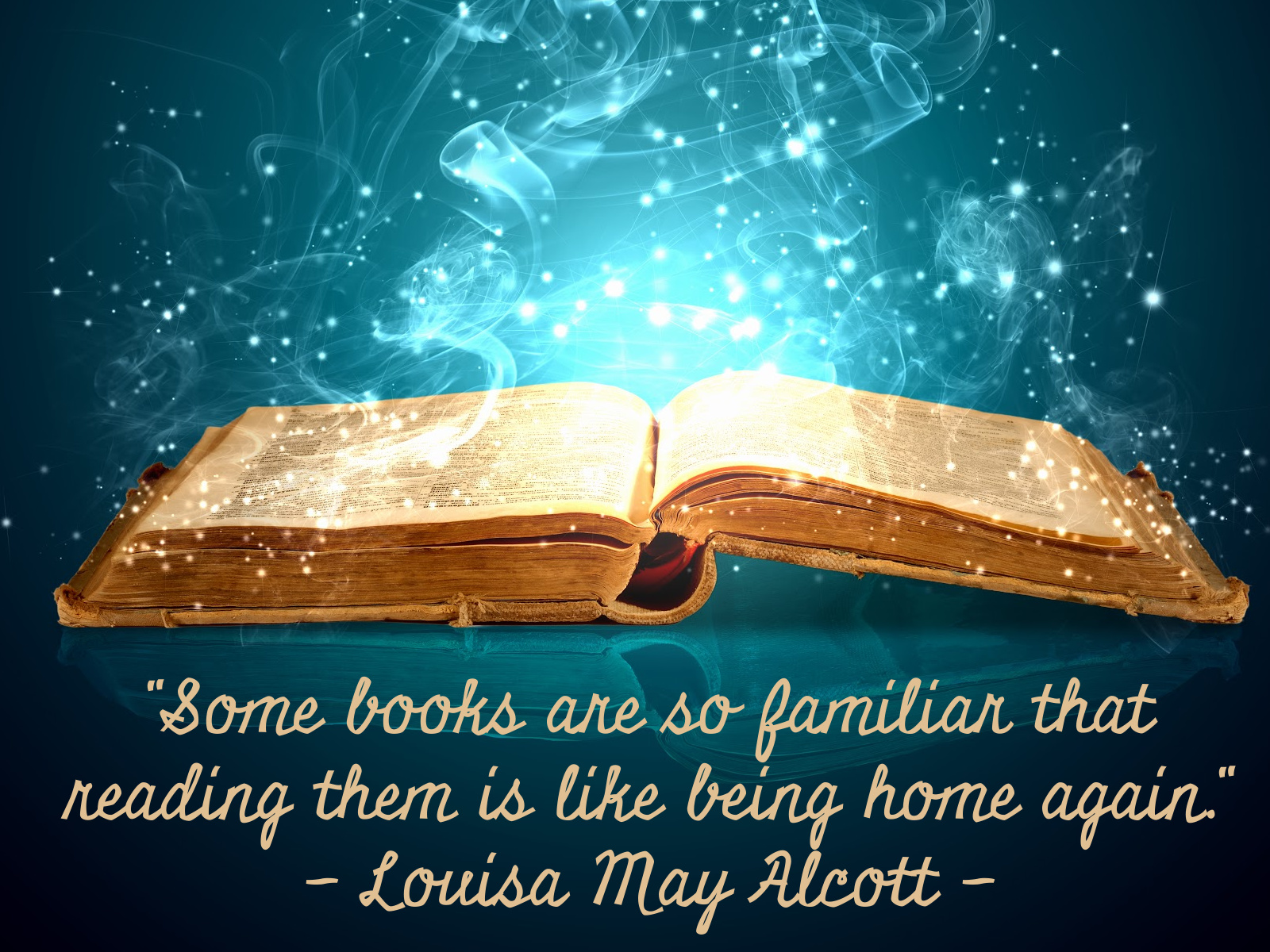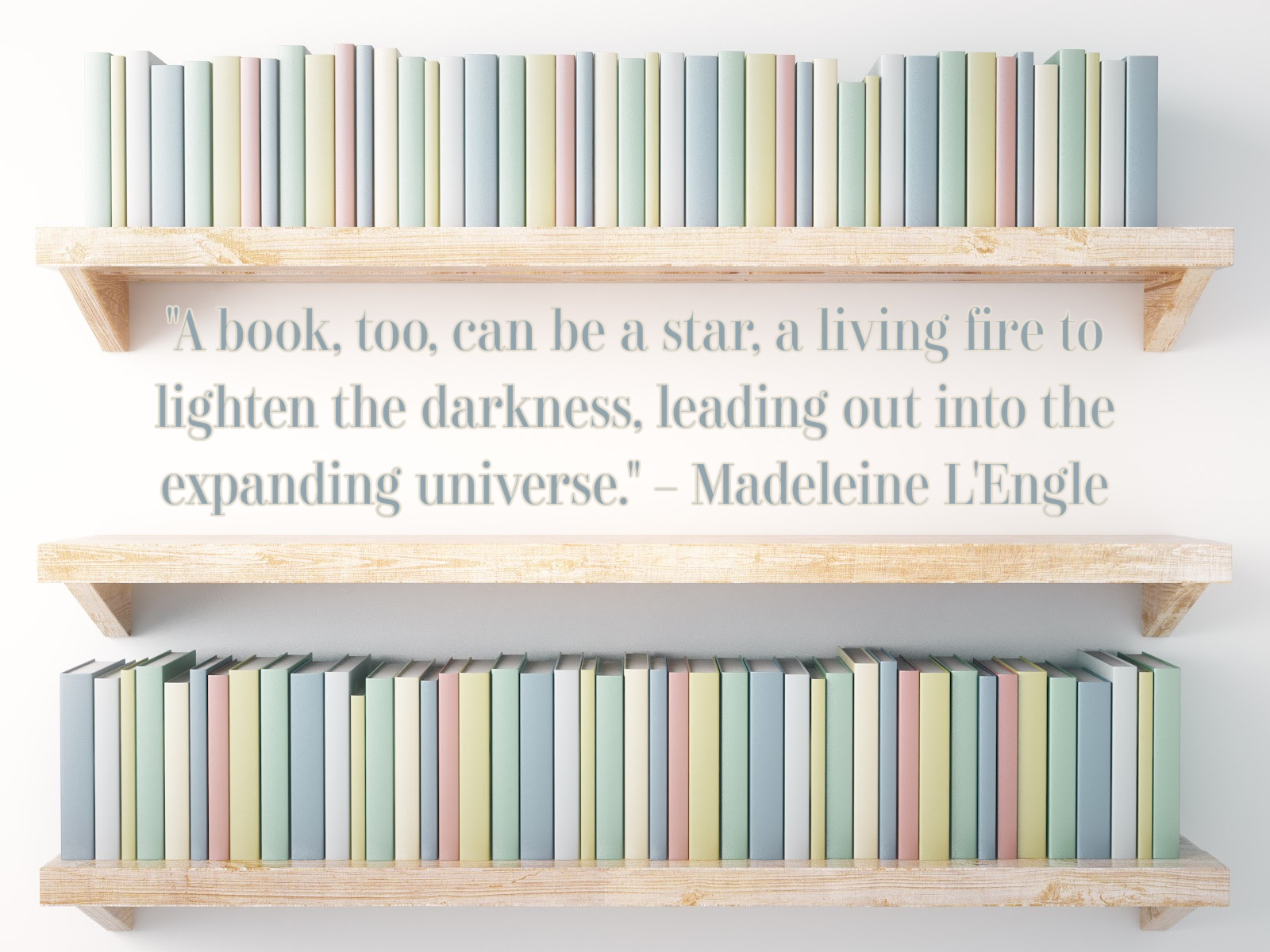When I think back to the most memorable reading experiences of my childhood, there is one prevailing theme: nearly all of my favorite books were part of a series. I loved settling into a story with characters and worlds I could return to again and again, whether it was chasing clues with Nancy Drew; gathering in Claudia Kishi’s bedroom with Mary Anne, Kristy, Dawn, and the rest of the Baby-Sitter’s Club for a weekly meeting; running alongside a covered wagon with Laura and Mary Ingalls; laughing at Grandma’s stories about wayward hoop skirts and a horse that went missing; helping Mrs. Piggle-Wiggle cure every neighborhood child’s bad habits; navigating city life as a fourth-grader with an impressionable little brother named Fudge; exploring periods in American History with Molly or Kirsten or Samantha; or solving crimes from a boxcar home. The occasional stand-alone novel made an appearance in my reading life, but it was the book series that left the deepest impression.
I know I’m not alone as a book-lover who cut her teeth on series books; middle-grade book series come up in nearly every conversation I have with other readers about their early reading lives! And while many of the series my peers read as children were far more literary than most of my own childhood favorites*, these books still served the invaluable purpose of developing my reading skills, nurturing a love of story, and opening my eyes to new times, places, ideas, and ways of living.

Now that I’m raising a new generation of young readers, I have a deeper understanding and appreciation for the role that series play in a developing reader’s life. It’s easier for a child to slide into a new story when she’s already familiar with the characters and setting. (This is especially valuable given the shorter length of children’s books compared with books written for adults.) Young readers are still learning their own reading tastes, and it can be much more comfortable for a new reader to continue with a series he knows he’ll love rather than take a chance on something new. The comfort provided in a series can also make it easier for children to explore challenging ideas or stories that may be presented in later books. (The Harry Potter books are an excellent example of this.)
I love that there are so many great juvenile series for my kids to discover. I’ve watched Charleston plow through many book series, and it’s helpful for me as his primary book-supplier to know that the discovery of one good book could mean many more potential books for him in the future. But as an adult, I am much less likely to read books in a series. I am now comfortable with fresh storylines and new characters and no longer need the scaffolding of a series to settle into a good story. In fact, I find that a book series can feel limiting, especially when there is such an abundance of books to explore.
My role as a public book reviewer also factors into my reluctance to pick up a new series: I worry that back-to-back reviews from the same series will be tedious for others to read (especially when I can’t say much about a book that’s later in a series due to spoilers), so I sometimes read the first book in a series without plans to immediately step into book two. Unfortunately, this means that I will have forgotten important details by the time I do want to pick up where I’ve left off, and I often choose to forgo this frustrating reading experience by skipping the book altogether. I think I’d be more likely to actually continue with a series if the authors made it easier to dive back into their world after some time away. A friend recently told me about book two of a trilogy she’s loving that starts out with a “Cheat Sheet” recap of Book One, complete with a character list and important plot points. I wish more authors thought to do this!
One thing I notice about the book series I loved as a child is that most of the stories were self-contained. The books in my favorite series had a unifying setting or characters, but they could be read in any order, and each book held a story that could stand alone. I’ve seen this described as a Static series, which is different from a Dynamic series that has a chronological, overarching storyline. As an adult reader, I continue to be much more likely to pick up a book in a static series. I can feel intimidated by the commitment involved with a dynamic series . . . although a duology or trilogy feels less intimidating because I am dealing with a known number of books. I admire the commitment of those who settle into a series that just keeps going!

While I’m not currently a big series reader, I still love the idea of a series. Few things are better than falling hard for a character or fictional setting and knowing that I have the option of reviving the lovely reading experience through subsequent books. For instance, I can’t wait to spend more time with Vera Wong in the recently-released book #2 of the series, and I was thrilled to see that Richard Osman plans to add a follow-up to We Solve Murders. There are many other series that I have not continued and may not pick up again, but I still find it comforting to know that those stories have been continued—for the enjoyment of others, if not for myself.
Now it’s time to hear from you: how do you feel about book series? Are you more or less likely to pick up a book if it’s part of a series? If you are a series lover, do you prefer dynamic or static book series? What are some series you love as an adult, and what is a favorite series from your childhood? Do you have a favorite book series to recommend? Let’s discuss!
*I was an adult before I learned to appreciate Anne of Green Gables and The Chronicles of Narnia, and I still haven’t come around to the The Lord of the Rings.
I am a person who LOVES to answer questions, in contrast to my sister, who almost NEVER answers my questions in emails! So, you keep asking questions, and I keep answering them.
I thought I was like you, not really interested in starting a series, and for instance, I read 2 or 3 of the Louise Penny books, but they didn’t hold my attention and I didn’t feel like working my way thru the whole series. Daunting! I could go with a trilogy maybe. And I didn’t even feel as though I had read many series as an adult. But oh my goodness, I was wrong! Looking back thru my book journals through the years I have read so many! (especially before I started following book blogs and podcasts and bookstagram—which have introduced too many individual books to me).
As a child, I was a Nancy Drew fan, and that led to so many mystery series. Including the Hardy Boys! I think you are right, we love the familiarity, the feeling that we can trust this author. Some of the ones I’m going to mention were not about the same characters, but they were similar and standing side by side in the library and I took them all out! I only mention the ones that had at least 8-10 written by the same author—These are some authors that wrote mysteries for young people prolifically: Lenora Mattingly Weber, Phyllis A Whitney, Mary C Jane, Elizabeth Honness, but also: the Ginnie and Geneva stories by Catherine Wooley, The Black Stallion series by Walter Farley, The Mary Poppins series by Travers (yes, there is more than one!), The Trixie Belden series, Cherry Ames, Nurse series, The Narnian Chronicles, the Tarzan series, and the Borrowers by Mary Norton. I would add the My Friend Flicka trilogy, I have read that over and over as an adult. You notice I did not list the Babysitter series, I didn’t know of that, maybe they came after me, nor the Little House series, I thought they were boring, nor the Anne of Green Gables series. I read one or two, but for whatever reason, never continued.
As an adult, here are some of the series I have read and loved: Martha Grimes’ Richard Jury mysteries, Sue Grafton’s alphabet series, Sara Paretsky’s VI Warshawski novels, PD James’ Dalgleish mysteries, The Outlander series (up to a point), The Horatio Hornblower series, the Master and Commander series (all 20 books–yes! So good), The Williamsburg series by Elswyth Thane, The Bloody Jack YA series by LA Meyer, (I think your Charleston would like that and it’s great fun on audio with the cockney accent), The Flavia de Luce series by Alan Bradley, Ivan Doig’s Montana trilogy, the 4 Thursday Murder Club books, and I’m just starting the Wolf Hall trilogy, and you could argue that Elizabeth Strout’s books about Lucy Barton is a series (5 books), as well as all her other characters, they are all mingling and showing up in every book! Oh, and the No. 1 Ladies Detective Agency series (like, 26 and counting) and the 44 Scotland Street series both by Alexander McCall Smith. Oh, and the Rosie Project trilogy by Simsion, and the Aaron Falk trilogy by Jane Harper. So I guess I have read a lot of series and continue to look forward to the next installment! And I think I like both, the ones that are serial and the ones that stand alone. And I have read several by Kate Atkinson and enjoy her writing a lot, but haven’t read them all (the Jackson Brody series).
You can tell, when I answer, I try to be as complete as possible! Thank you for giving me a fun job tonight.
I LOVE you response, thanks so much for sharing! You’ve reminded me of quite a few other series that I’ver read or at least sampled. I like the Lucy Barton books (and similar series) that are in the same world but not necessarily a series. I loved Rosie Project but not the sequel, and I liked the Aaron Falk books and 44 Scotland Street books, Thursday Murder Club (that’s one series I do want to continue after reading the first couple), and Flavia de Luce. I just discovered Trixie Belden a few years ago and thought the series was so sweet! I never could get into Hardy Boys, but that series is responsible for making my brother a reader! I keep trying to get Charleston into them, without much luck.
I didn’t like the Rosie sequel, either, it was a downer and had a lot of bad language, but I liked the third one better! It was more like the first.